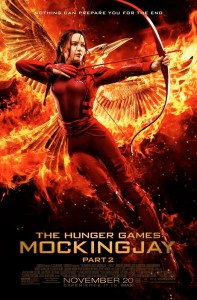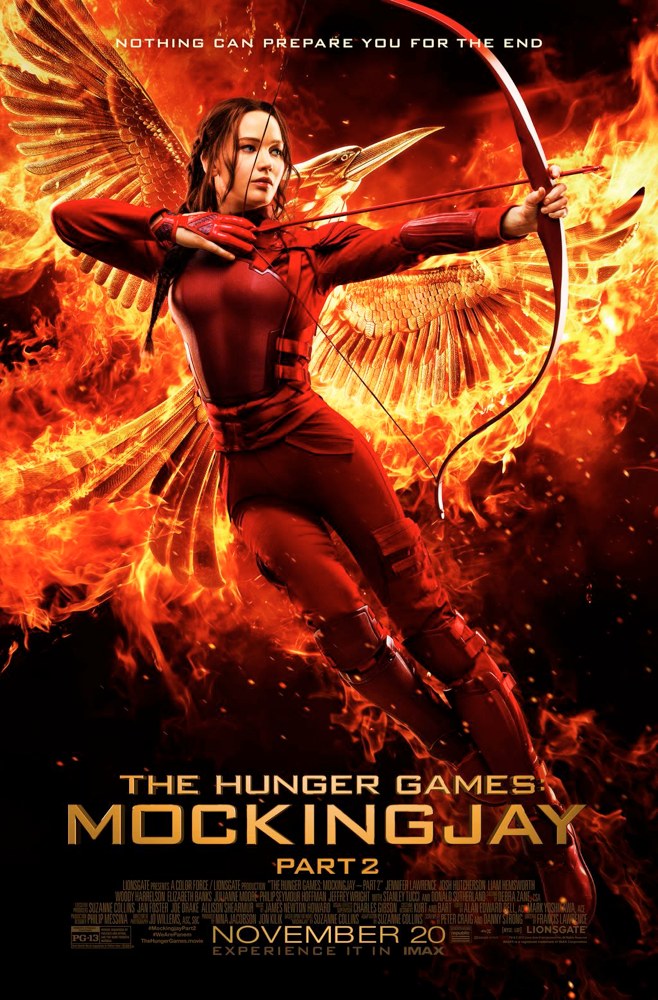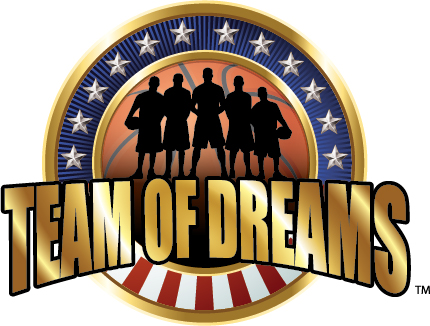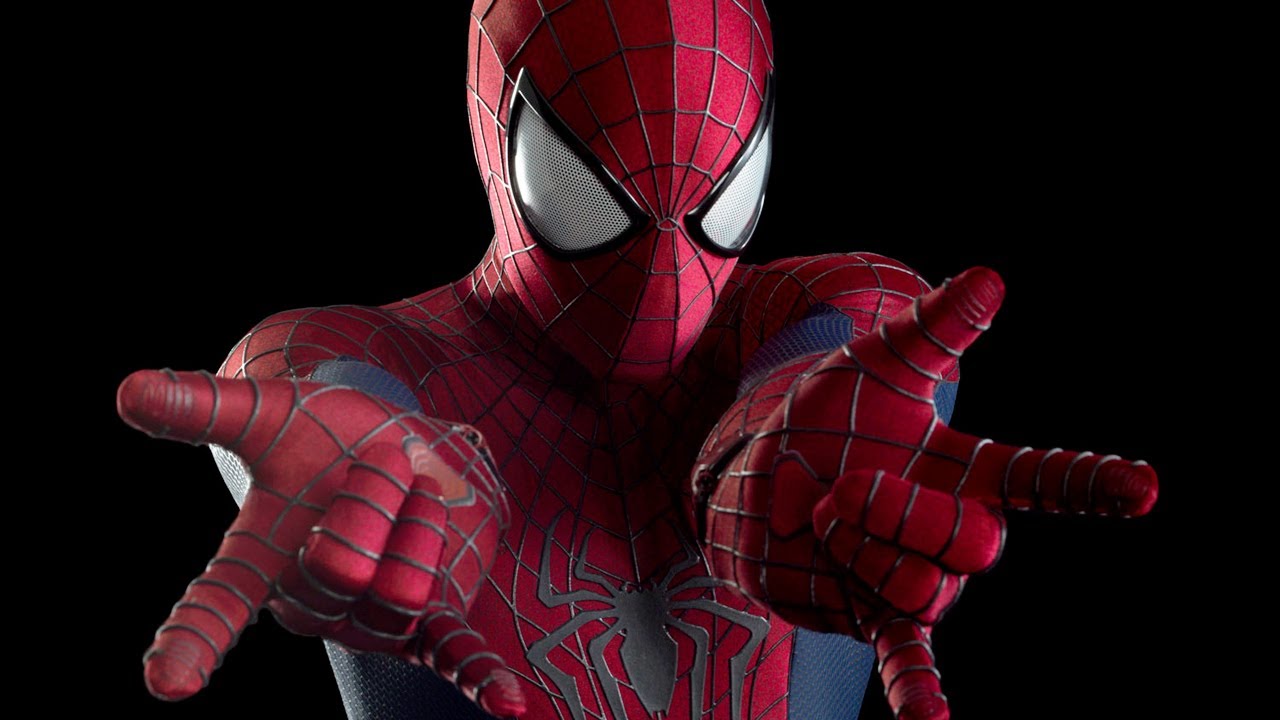 The problem is there are big moments that are either too rushed to too telegraphed ahead of time to really have the impact they should. Toss in a rather forced love triangle in what is otherwise a very dour and serious story, and you have a very uneven end to this series which…oh, I’m sorry, does it seem like you’ve just stepped right into the middle of this. Yeah, well, that’s the other thing about Mockingjay Part 2; it just keeps the story going from Part 1 without skipping a beat. It’s so abrupt they should put head rests on theater seats to prevent whiplash. You’d think you’re starting right in the middle of a movie, which I suppose you are, but it’s still an uncomfortable start to an uncomfortable end to this popular series.
The problem is there are big moments that are either too rushed to too telegraphed ahead of time to really have the impact they should. Toss in a rather forced love triangle in what is otherwise a very dour and serious story, and you have a very uneven end to this series which…oh, I’m sorry, does it seem like you’ve just stepped right into the middle of this. Yeah, well, that’s the other thing about Mockingjay Part 2; it just keeps the story going from Part 1 without skipping a beat. It’s so abrupt they should put head rests on theater seats to prevent whiplash. You’d think you’re starting right in the middle of a movie, which I suppose you are, but it’s still an uncomfortable start to an uncomfortable end to this popular series.
The interesting thing is the first part of this two-part conclusion was probably the best film in the series, so it came as quite a surprise that the final finale ended with such a thud. Yet, whereas Part 1 was able to take some weaker material and elevate into a really good movie, this second part takes arguably the more interesting half of the book and bumbles it. Key moments that should have a big impact fail to land; in one case because we’re not given enough time to absorb what’s happened, and in the other because a big twist is undermined by some fairly obvious telegraphing of what said twist will be. So two of the key elements that really grabbed me in the book fail to make much of an impression here. However, it may be a case that because I knew those moments were coming there was no way for them to have the same kind of impact, but there’s definitely some mishandling of the material here. It was also a bit distracting that characters that played fairly major roles previously make what amount to a few glorified cameos here. Granted some of this was due to the flaws of the book itself, but certainly there was room for improvement when translating it to the screen that was not seized upon.
It’s not all bad, however, as there are parts that the film does improve upon, most notably how it all ends. The Hunger Games books are very bleak, nihilistic and hopeless affairs. The movie ends on a lighter note with a bit more hopefulness in it, which seems outplace considering what’s come before, but is welcome nonetheless. The big problem is the fact that the world of the Hunger Games is one completely devoid of hope. Existence is all there is, and for those outside the Capitol, that isn’t all that much to begin with. Even the hope of change is wiped away as it’s quickly seen that people will quickly disappoint and the hope of things ever truly changing may be foolish to begin with. That’s the big question that needs answering, isn’t it? Where do we find hope? Where do we find the means to go on living when life doesn’t really seem worth it? Part of what makes the books so dour, and the films only slightly less so, is that Katniss never really finds the answer to that question. I find it interesting that many of these future, dystopian type stories there never really is an answer to that question, and coincidentally, God is generally nowhere to found. Or maybe that’s not much of a coincidence at all. Jesus stated quite clearly that he came to give us life; a full, complete, eternal life. (John 10:10) Jesus came to provide us with that hope that endures even when life would tell us that it’s hopeless. (Romans 5:5) Take God out of the equation, remove Jesus from the scene, and it’s no surprise that the future is dystopian.
I had high hopes for how this series was going to end after Mockingjay Part 1. That film raised the bar considerably and brought the book to life in vivid and beautiful ways. It was quite the shock, then, when Part 2 stumbled so badly in delivering the epic conclusion that seemed ripe for the taking. Again, some of this may be due to the flaws of the source material, but some of it also due to some mishandling of the source material. In the end, Mockingjay Part 2 doesn’t leave as much of an impression as it could or should have, which is a shame since, up to this point, things had just been improving from film to film.




![300: Rise of An Empire [Official Trailer]](https://www.jamthehype.com/wp-content/uploads/2013/12/300-Rise-of-An-Empire-Official-Trailer-3-Sullivan-Stapleton-Eva-Green.jpg)
